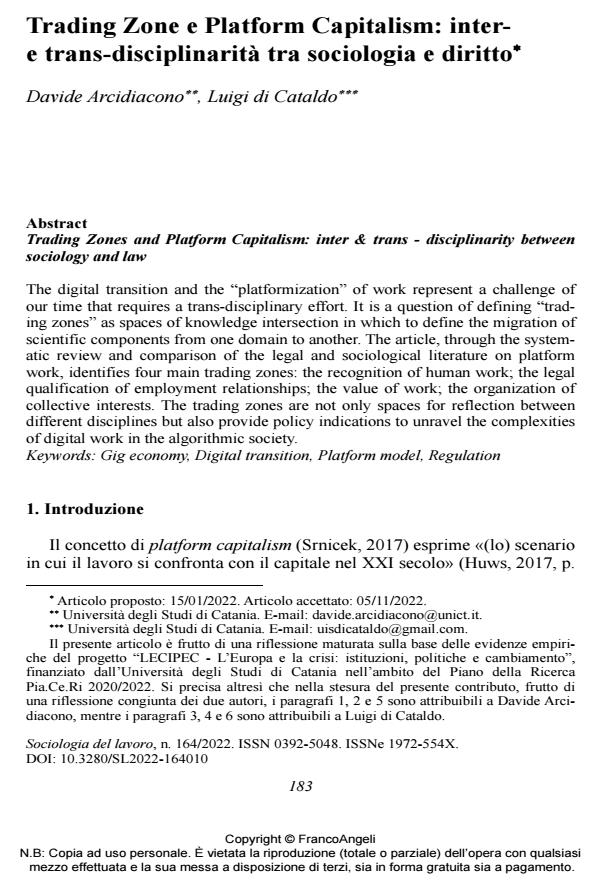Trading Zones and Platform Capitalism: inter & trans - disciplinarity between sociology and law
Journal title SOCIOLOGIA DEL LAVORO
Author/s Davide Arcidiacono, Luigi di Cataldo
Publishing Year 2022 Issue 2022/164
Language Italian Pages 26 P. 183-208 File size 306 KB
DOI 10.3280/SL2022-164010
DOI is like a bar code for intellectual property: to have more infomation
click here
Below, you can see the article first page
If you want to buy this article in PDF format, you can do it, following the instructions to buy download credits

FrancoAngeli is member of Publishers International Linking Association, Inc (PILA), a not-for-profit association which run the CrossRef service enabling links to and from online scholarly content.
The digital transition and the "platformization" of work represent a challenge of our time that requires a trans-disciplinary effort. It is a question of defining "trad- ing zones" as spaces of knowledge intersection in which to define the migration of scientific components from one domain to another. The article, through the system- atic review and comparison of the legal and sociological literature on platform work, identifies four main trading zones: the recognition of human work; the legal qualification of employment relationships; the value of work; the organization of collective interests. The trading zones are not only spaces for reflection between different disciplines but also provide policy indications to unravel the complexities of digital work in the algorithmic society.
Keywords: Gig economy, Digital transition, Platform model, Regulation
Davide Arcidiacono, Luigi di Cataldo, Trading Zone e Platform Capitalism: intere trans-disciplinarità tra sociologia e diritto in "SOCIOLOGIA DEL LAVORO " 164/2022, pp 183-208, DOI: 10.3280/SL2022-164010